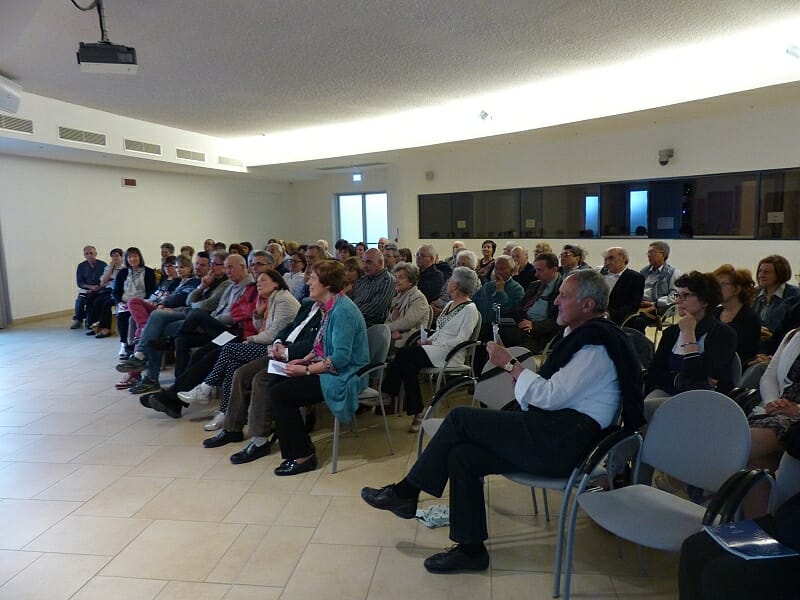 It was the evening of 7 May 1995 at the international Centre in Loppiano (Italy). A group of people of various beliefs and cultural backgrounds were having a lively discussion at dinner. They had spent the entire day together to see whether they, as Catholics and agnostics, could overcome ideological limits, dislikes and century-old prejudices and get to understand, accept and appreciate one another. These gatherings of people who spoke different languages and professed various beliefs had started already in 1978 when Chiara Lubich, founder of the Focolare Movement, set up the “Centre for Dialogue with People who hold No Religious Affiliations” within the scope of a more extensive experience initiated by the Focolare. The 7 May 2015 meeting in Loppiano was taken as an opportunity to take stock of this reality and a challenge to certify, face to face, if mutual esteem is really possible. Over the years, in fact, all have even become “friends,” and getting together and discussing with one another was considered not only stimulating but also very pleasant. At that dinner, however, someone was missing, one who perhaps was the most active in the group: Ugo Radica. This really special focolarino had decided to pursue an idea without notifying anybody and had gone to station himself close to the house of Chiara Lubich, founder of the Movement, who was supposed to arrive in Loppiano that evening. His patience was rewarded in the end when Chiara’s car finally came into view. Ugo approached the car, and Chiara, quite surprised, lowered the window to ask: «What are you doing here, Ugo? He firmly said: “I’m here with a group of friends of different beliefs. Why don’t you come to see us tomorrow? I think it would be very important for them to have an exchange of ideas with you personally.” Chiara accepted though unsure and a bit doubtful. She requested that the group prepare some questions for her to answer. Ugo thus returned to the group full of enthusiasm.
It was the evening of 7 May 1995 at the international Centre in Loppiano (Italy). A group of people of various beliefs and cultural backgrounds were having a lively discussion at dinner. They had spent the entire day together to see whether they, as Catholics and agnostics, could overcome ideological limits, dislikes and century-old prejudices and get to understand, accept and appreciate one another. These gatherings of people who spoke different languages and professed various beliefs had started already in 1978 when Chiara Lubich, founder of the Focolare Movement, set up the “Centre for Dialogue with People who hold No Religious Affiliations” within the scope of a more extensive experience initiated by the Focolare. The 7 May 2015 meeting in Loppiano was taken as an opportunity to take stock of this reality and a challenge to certify, face to face, if mutual esteem is really possible. Over the years, in fact, all have even become “friends,” and getting together and discussing with one another was considered not only stimulating but also very pleasant. At that dinner, however, someone was missing, one who perhaps was the most active in the group: Ugo Radica. This really special focolarino had decided to pursue an idea without notifying anybody and had gone to station himself close to the house of Chiara Lubich, founder of the Movement, who was supposed to arrive in Loppiano that evening. His patience was rewarded in the end when Chiara’s car finally came into view. Ugo approached the car, and Chiara, quite surprised, lowered the window to ask: «What are you doing here, Ugo? He firmly said: “I’m here with a group of friends of different beliefs. Why don’t you come to see us tomorrow? I think it would be very important for them to have an exchange of ideas with you personally.” Chiara accepted though unsure and a bit doubtful. She requested that the group prepare some questions for her to answer. Ugo thus returned to the group full of enthusiasm.
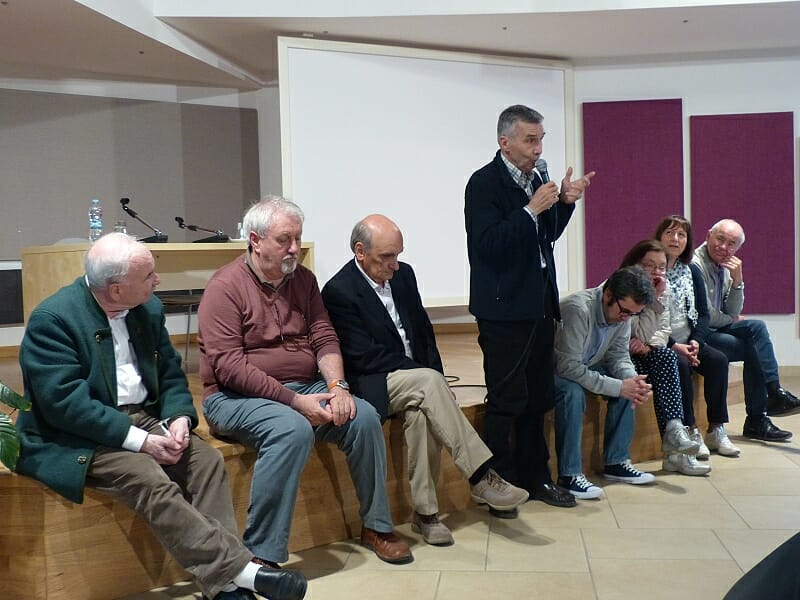 That evening, Tito, one of the friends who had turned up by chance at the last minute, phoned his wife, a genuine Catholic, and a long-time member of the Movement, to proudly announce to her that he had spoken to Chiara personally, while she in all those years still had not seen or had a glimpse of her even from afar.
That evening, Tito, one of the friends who had turned up by chance at the last minute, phoned his wife, a genuine Catholic, and a long-time member of the Movement, to proudly announce to her that he had spoken to Chiara personally, while she in all those years still had not seen or had a glimpse of her even from afar. 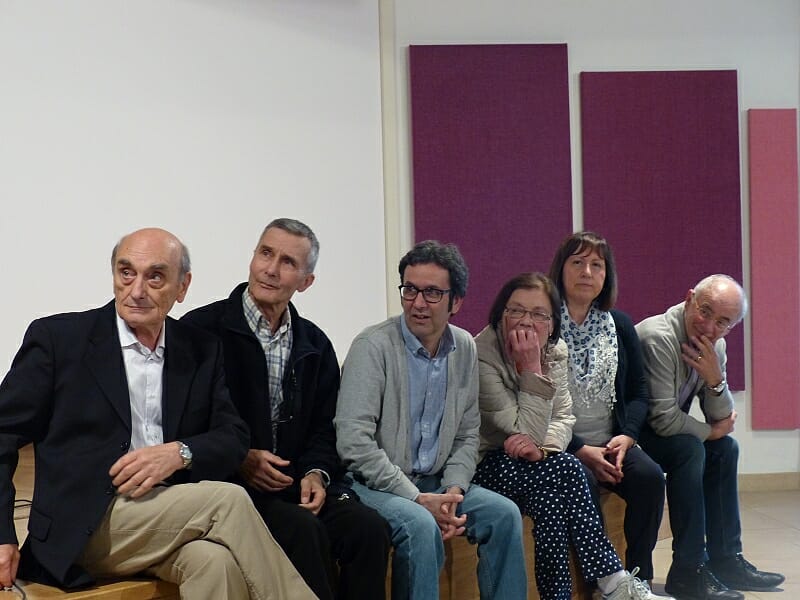 Twenty years later, on 7 May 2015 there was again a celebration in Loppiano. A nostalgic commemoration? Absolutely not. Armando, Morena, Tito, Dolores, Piero, Luciana, Roberto, Silvano and many more followed one another onstage to recall those moments, not only to assess the 20 years that have passed, but to also organize the next events. They are convinced, more than ever, of the importance of this type of dialogue. And unlike the moments of encounters between believers, one never knows how these “fourth dialogue” meetings can turn out. But precisely this fact is a warranty of authenticity, since each inevitably has to be fully and personally involved, ready to offer one’s ideas but also accept those of others through an intricate but fruitful exchange. This dialogue which has continued through the years, not without difficulties, has become international, and has reached many countries. Its diffusion and urgency was strongly felt as a pressing responsibility by those who attended the 2015 gathering. This lifestyle has to be actualised firstly among the members of the Movement, to be offered in turn, to all of humanity.
Twenty years later, on 7 May 2015 there was again a celebration in Loppiano. A nostalgic commemoration? Absolutely not. Armando, Morena, Tito, Dolores, Piero, Luciana, Roberto, Silvano and many more followed one another onstage to recall those moments, not only to assess the 20 years that have passed, but to also organize the next events. They are convinced, more than ever, of the importance of this type of dialogue. And unlike the moments of encounters between believers, one never knows how these “fourth dialogue” meetings can turn out. But precisely this fact is a warranty of authenticity, since each inevitably has to be fully and personally involved, ready to offer one’s ideas but also accept those of others through an intricate but fruitful exchange. This dialogue which has continued through the years, not without difficulties, has become international, and has reached many countries. Its diffusion and urgency was strongly felt as a pressing responsibility by those who attended the 2015 gathering. This lifestyle has to be actualised firstly among the members of the Movement, to be offered in turn, to all of humanity.

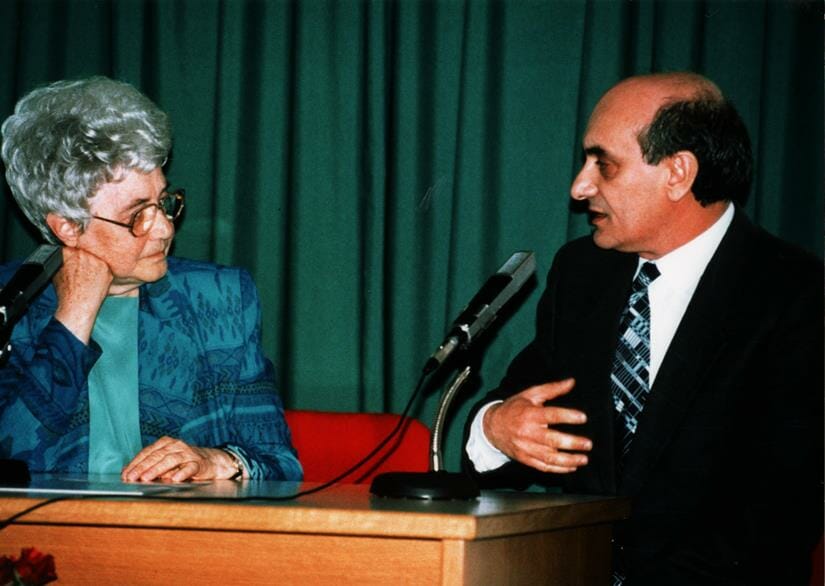
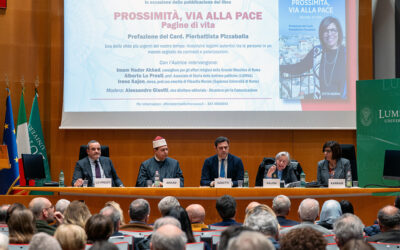
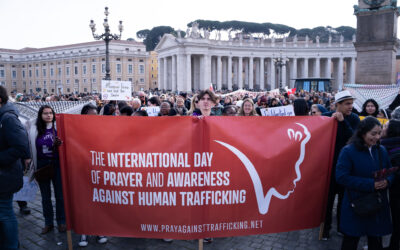

0 Comments